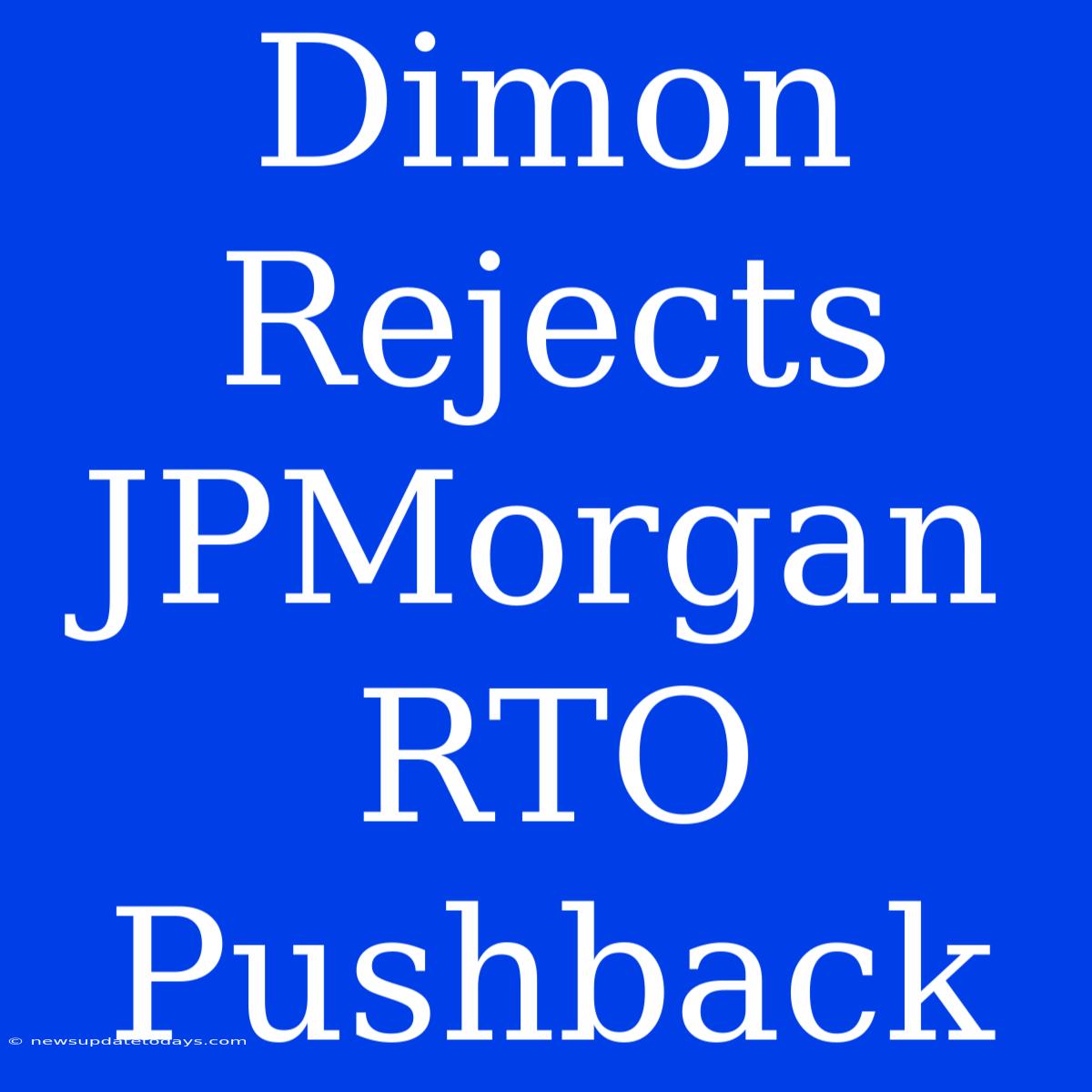Dimon Rejects JPMorgan RTO Pushback: A Deeper Dive into the Return-to-Office Debate
The recent pushback against JPMorgan Chase & Co.'s return-to-office (RTO) mandate has been met with a firm stance from CEO Jamie Dimon. This decision underscores a significant clash between evolving work styles and traditional corporate structures, sparking a wider conversation about the future of work. This article delves into the specifics of the situation, examining Dimon's reasoning and the broader implications for the industry.
Dimon's Stance: Productivity and Collaboration at the Core
Dimon's rejection of the pushback isn't simply a matter of control; it's rooted in his belief that in-person collaboration is crucial for JPMorgan's success. He argues that the energy, mentorship, and spontaneous idea generation that occur in a physical office environment are irreplaceable for fostering a strong corporate culture and driving productivity. This emphasis on face-to-face interaction highlights a key difference in philosophy between JPMorgan and companies embracing fully remote or hybrid models.
The Employee Perspective: A Balancing Act
While Dimon emphasizes the benefits of RTO for the company, employee concerns remain valid. Many employees have adjusted to remote work and value the flexibility it offers, including improved work-life balance and reduced commute stress. The pushback reflects a growing demand for more autonomy and a recognition that productivity isn't solely tied to physical presence. Finding a balance between organizational needs and employee well-being is a significant challenge for companies navigating this new landscape.
The Broader Implications: A Shifting Paradigm in Corporate Culture
The JPMorgan RTO debate isn't isolated; it's a microcosm of a larger shift in corporate culture. Many companies are grappling with how best to structure their workforce in a post-pandemic world. The outcome of this debate will significantly influence the future of office spaces, employee expectations, and overall business strategies. Companies that fail to adapt to the evolving needs and preferences of their employees risk losing talent to competitors offering more flexible arrangements.
What's Next for JPMorgan and the Wider Industry?
JPMorgan's firm stance likely signals a trend among large financial institutions that prioritize in-person collaboration. However, the long-term success of this approach remains to be seen. The ongoing dialogue surrounding RTO policies will undoubtedly shape future workplace strategies, potentially leading to more nuanced and flexible approaches that accommodate both organizational needs and employee preferences. Companies must carefully consider the various perspectives involved and strive to create work environments that are both productive and supportive of employee well-being. The future of work is likely to be a hybrid model, a careful balancing act between the benefits of in-person interaction and the flexibility of remote work.
Keywords: JPMorgan Chase, Jamie Dimon, Return-to-Office (RTO), Remote Work, Hybrid Work, Workplace Culture, Corporate Strategy, Employee Well-being, Productivity, Collaboration, Future of Work.

